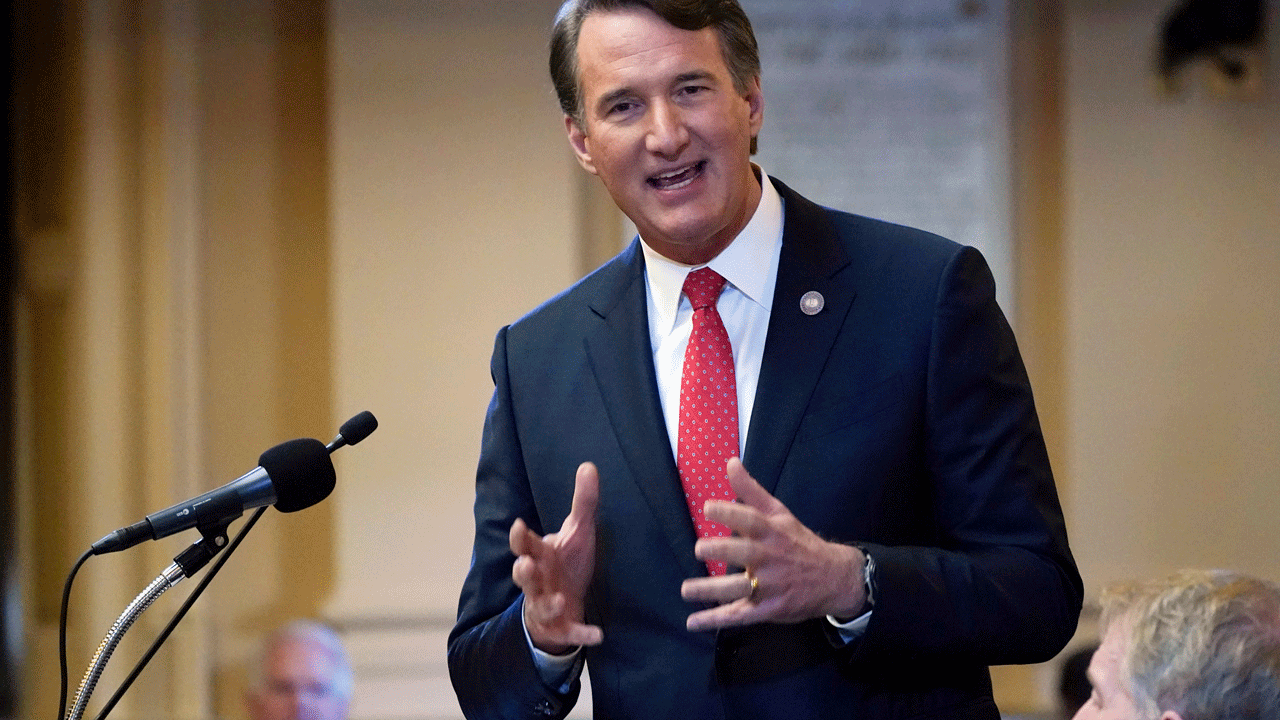Fox News Flash top headlines for May 17
Fox News Flash top headlines are here. Check out whats clicking on Foxnews.com.
Virginia Gov. Glenn Youngkin vetoed several bills late Friday from the final batch of the year’s regular legislative session, including legislation that focuses on protecting access to contraceptives, as well as a measure that would have allowed small businesses to host skill games, which are similar to slot machines.
The vetoes came after Youngkin, a Republican, first proposed amendments that the legislature rejected. In a nighttime statement, he said he was willing to keep working with the Democratic-controlled General Assembly on the issues but was vetoing measures that were "not ready to become law."
In total, Youngkin signed seven bills into law and vetoed 48, including the Right to Contraception Act, which was approved by the Democrat-controlled Virginia Senate and House of Delegates.
"I support access to contraception. However, we cannot trample on the religious freedoms of Virginians," Youngkin said in a statement, adding that access to contraception is already protected under the Constitution.
PROTECTION OF CONTRACEPTION ACCESS ADVANCES IN VIRGINIA LEGISLATURE

Virginia Gov. Glenn Youngkin vetoed several bills late Friday from the final batch of the year’s regular legislative session, including legislation that focuses on protecting access to contraceptives, as well as a measure that would have allowed small businesses to host skill games, which are similar to slot machines. (AP Photo/Steve HelbeR)
The bill defined contraception, prevented any restrictions and established enforcement by civil penalty, according to WRC-TV.
Youngkin already sent back a substitute measure that was not a new law but a policy statement that Virginians have a right to access contraception under current Supreme Court precedents. But his motion expired and the original bill was sent back to the governor, which he then vetoed.
"Quality health care for women is essential and contraception remains a crucial component of reducing abortions and fostering a culture of life, making Virginia the best place to raise a family," Youngkin said. "As the issue continues to be deliberated by the Legislature, and recognizing the diverse religious, ethical, and moral beliefs of Virginians, any contraception-related changes must be coupled with robust conscience clause protections for providers and also must uphold the fundamental right of parents to make decisions concerning their children's upbringing and care."

Close-up of a woman's hand holding birth control pills. (iStock)
He said that the measure created an "overly broad cause of action against political subdivisions and parents, as well as medical professionals acting in their expert judgment and within their scope of practice."
Youngkin also said the bill fails to include adequate conscience clause protections for providers and also undermines the fundamental right of parents to make decisions concerning their children's upbringing and care.
Democrats criticized the veto, with state party chair Susan Swecker saying in a statement, "Youngkin just proved to Virginians that once again, he does not care about their health or rights."
CLICK HERE TO GET THE FOX NEWS APP

In total, Youngkin signed seven bills into law and vetoed 48.
Youngkin’s veto of the skill games measure, one of the year’s most contentious issues, was widely expected. The governor sought to overhaul the bill that was sent to him, but the Legislature overwhelmingly rejected his changes. Youngkin wanted a higher tax rate and far stricter limits on where the machines could be located, carving out a 35-mile radius around any casino, racetrack or gambling "satellite facility" where they would have been banned.
The governor also vetoed a measure that would have eliminated both a recordation and a property tax exemption for the United Daughters of the Confederacy, the Richmond-based women’s group that helped erect many of the country’s Confederate monuments. Proponents have argued that the group’s priorities were out of line with 21st century values.
The Associated Press contributed to this report.





